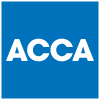The Government have recently issued further guidance on two of the support packages available to businesses affected by COVID-19.
Coronavirus Job Retention Scheme (“CJRS”)
The updated guidance on the CJRS sets out the procedures following the changes that come into force on 1 July 2020. The major change on 1 July will be that employers will be able to bring back employees on a part time basis. The guidance covers in detail how the furlough grant should be calculated in this situation.
The CJRS will come to an end on 31 October with the level of support being reduced as from 1 August.
- June and July – The level of support is be unchanged
- August – the Government will pay 80% of wages up to a cap of £2,500 and employers will pay ER NICs and pension contributions for the hours the employee does not work.
- September, the Government will pay 70% of wages up to a cap of £2,187.50 for the hours the employee does not work. Employers will pay ER NICs and pension contributions and 10% of wages to make up 80% total up to a cap of £2,500.
- October, the Government will pay 60% of wages up to a cap of £1,875 for the hours the employee does not work. Employers will pay ER NICs and pension contributions and 20% of wages to make up 80% total up to a cap of £2,500.
Self-Employment Income Support Scheme (“SEISS”)
The deadline for claiming the first grant under the SEISS is 13 July. All claims must be made on or before this date. To find out if you are eligible to make a claim follow this link.
Details of the second and final grant for self employed individuals have been released on the .GOV website. Eligible individuals can claim a taxable grant worth 70% of their average monthly trading profits, paid out in a single instalment covering three months’ worth of profit, and capped at £6,570 in total.
The eligibility criteria are the same for both grants, and individuals will need to confirm that their business has been adversely affected by coronavirus when applying for the second and final grant. An individual does not need to have claimed the first grant in order to be eligible for the second and final grant.
Applications to make a claim for the second grant will open in August 2020.
If you have any questions, our team of expert Accountants would be happy to assist.
Disclaimer: Content posted is for informational & knowledge sharing purposes only, and is not intended to be a substitute for professional advice related to tax, finance or accounting. Each comment posted by third party readers/subscribers of our website on topics of tax and accounting is their personal opinion and due professional care should be taken by you before you act after reading the contents of that post. No warranty whatsoever is made that any of the posts are accurate and is not intended to provide, and should not be relied on for tax or accounting advice.




